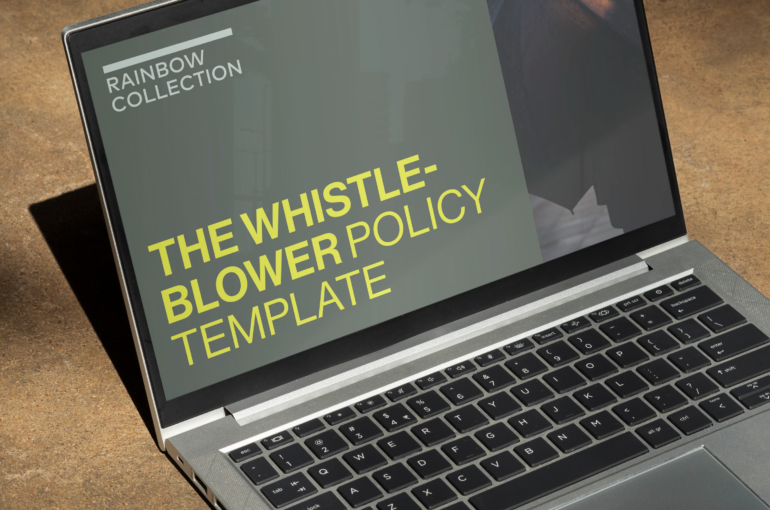The updated Whistleblower Policy for Compliance, Transparency, and Accountability

As of December 17, 2023, Dutch organizations have entered a new phase with the revised ‘Wet bescherming klokkenluiders’ or Whistleblower Protection Act. In this blog, we break down all you need to know about the required legal changes and explore how implementing a whistleblowing policy can enhance your company’s inclusion.
We also present our practical 4-step tool to create your own robust whistleblower policy – not just to meet legal requirements but to foster a culture of openness and accountability.
What is the Whistleblower Protection Act?
Consider it your organization’s safeguard against exposing wrongdoing or misconduct. Whether it’s fraud or safety violations, this legislation is here to discourage penalties for whistleblowers and encourage a culture of reporting.
What is Wrongdoing?
Wrongdoing refers to any misconduct or illegal activity within an organization. This could include fraud, safety violations, discrimination, harassment, or any actions that go against ethical or legal standards.
Who’s Affected?
If you’re a private sector EU employer with 50 to 249 employees, this is your call to action. Our template, based on the Dutch ‘Wet bescherming klokkenluiders,’ ensures compliance with Dutch – and therefore also EU law.
What if I have a company with 40 employees?
Even if your organization is not legally required to comply with this particular Dutch law due to its workforce size, it is recommended to take a proactive approach by instituting a whistleblower policy and encouraging an open culture. Developing a strong whistleblower policy can be advantageous for organizations of all sizes.
Who Can Report?
Everyone in your organization, or working with your organization. From senior managers to part-time workers or suppliers, inclusivity is the focus. Each member plays a role in shaping a culture of openness.
Why Does It Matter?
Incidents happen, but how you deal with them shapes your organizational culture. The updated law simplifies reporting, providing a secure space for voices to be heard. The Whistleblower Protection Act isn’t just a regulation; it can function as a tool for a more fair and responsible business culture. Creating your policy isn’t just compliance – it is an active effort to foster transparency, accountability, and a workplace where every voice is valued.
What are the most important legal changes?
- Expanded Protection: Whistleblowers are shielded beyond company borders, even when reporting to e.g. the ACM or AP in the Netherlands.
- Burden of Proof Shift: Stricter rules remind employers of their role in managing whistleblower claims.
- Receipt Transparency: Tightened requirements for acknowledgment ensure a transparent reporting process.
Do you need help? Craft your Whistleblower Policy in 4 simple steps with our template.
It is not just a legal shield – it’s a practical guide.
Find the template here.
If you have questions about the Whistleblower Protection Act, schedule a meeting with Pien using the link above or email her at .